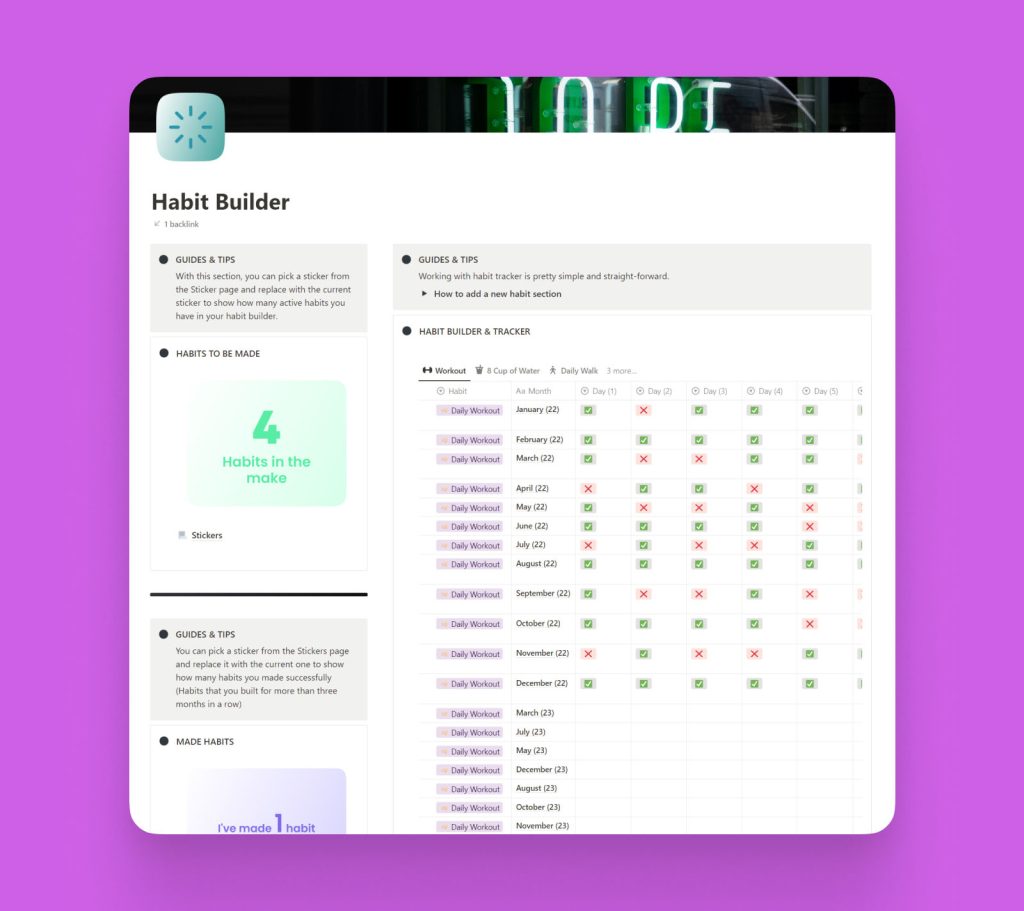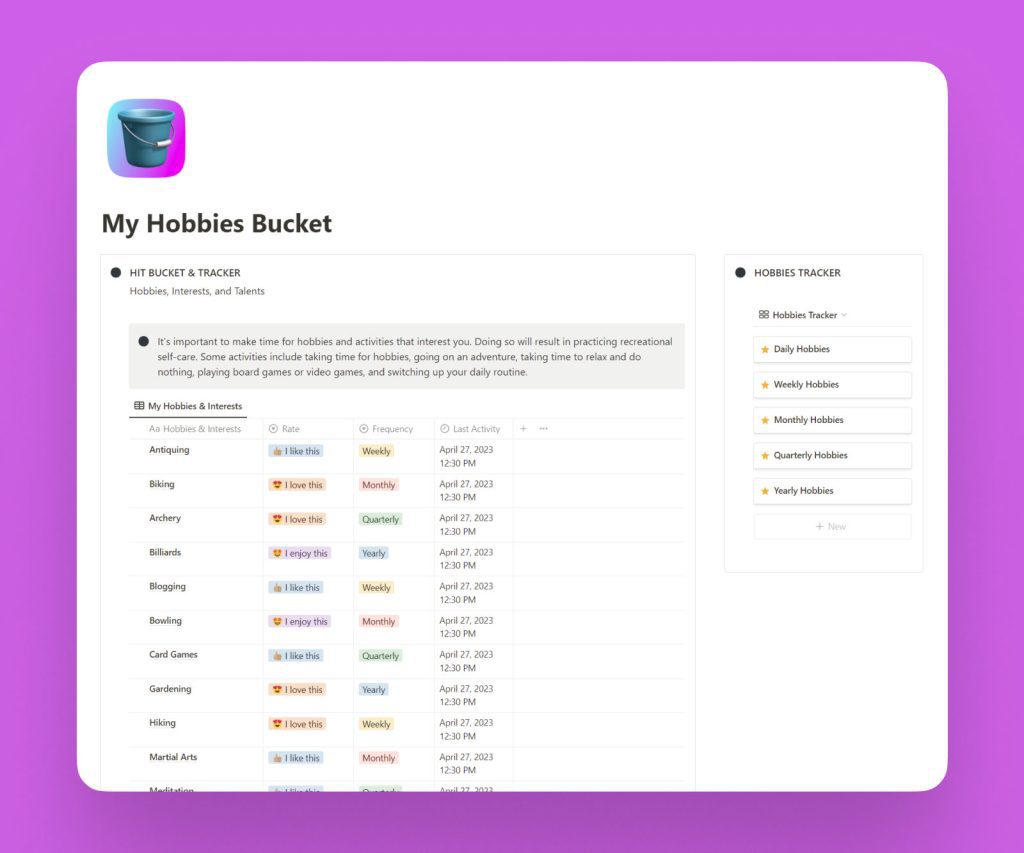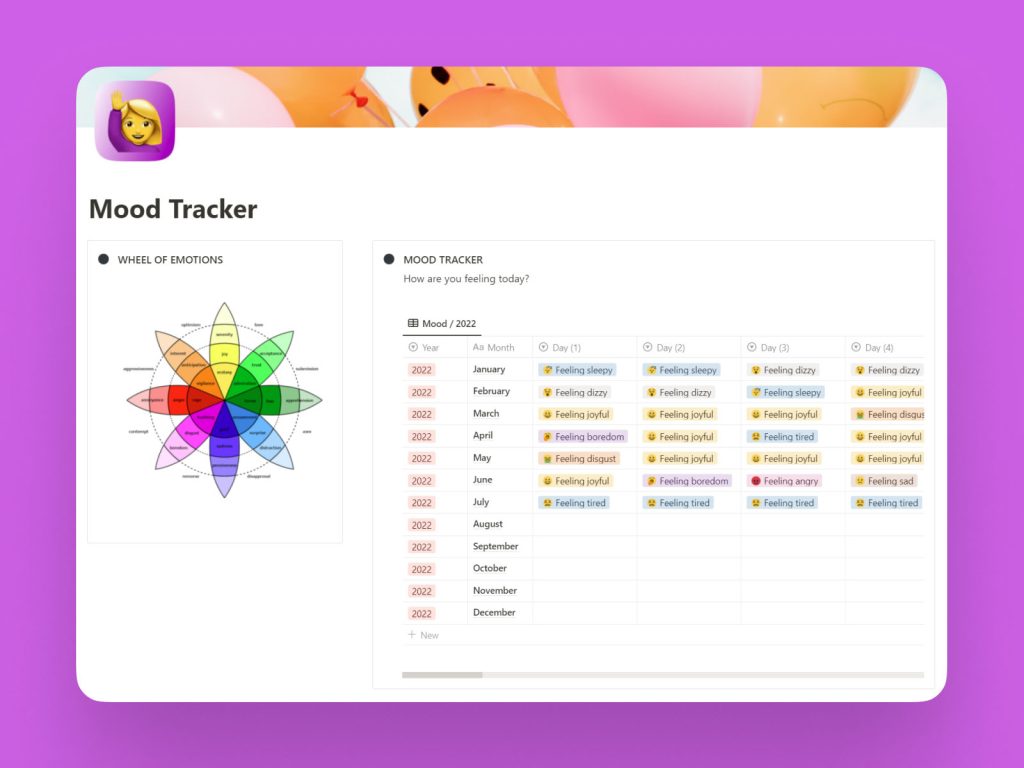How to Stop Procrastinating & Boost Your Productivity

Procrastinating is a common challenge that almost everyone faces at some point in their lives. Whether it’s putting off a work project, delaying household chores, or postponing personal goals, procrastination can be a significant roadblock to productivity and success. However, with the right strategies and mindset, you can overcome procrastination and unleash your full potential. In this blog post, we will explore practical tips and techniques to help you break free from procrastination and become more productive in all areas of your life.
What is Procrastination?
Procrastinating is the act of delaying or postponing tasks or actions that need to be completed, often resulting in a negative impact on productivity and overall well-being. It involves putting off important or necessary activities in favor of more pleasurable or less demanding tasks, even if they are not as essential.

The roots of procrastination can vary from person to person, but some common underlying factors include:
- Fear of Failure: Procrastination may be fueled by a fear of not meeting expectations or facing potential criticism. The fear of failure can be paralyzing, causing individuals to avoid tasks altogether to protect their self-esteem.
- Lack of Clarity: When tasks seem overwhelming or unclear, it’s easier to put them off. Without a clear plan or understanding of how to approach a task, people may feel stuck and uncertain about where to begin.
- Perfectionism: Striving for perfection can lead to procrastination because individuals may be hesitant to start a task if they feel they cannot achieve perfection. The fear of not meeting high standards can prevent them from even trying.
- Low Self-Confidence: Individuals with low self-confidence may doubt their abilities to complete tasks successfully. This lack of belief in themselves can lead to procrastination as they question their capability to handle challenges.
- Lack of Motivation: Without a strong sense of purpose or motivation, tasks can feel tedious and uninteresting, making them easier to avoid.
- Poor Time Management: Inadequate time management skills can contribute to procrastination. People may struggle to prioritize tasks effectively or may underestimate the time needed to complete them, leading to delays.
- Instant Gratification: Modern technology and the availability of entertainment and distractions can easily divert attention away from tasks. Opting for immediate rewards, such as browsing social media or watching videos, may take precedence over more significant but delayed benefits from completing tasks.
- Emotional State: Procrastination can be influenced by emotions such as stress, anxiety, or boredom. People may procrastinate to avoid dealing with negative emotions associated with certain tasks.
Understanding the roots of procrastination is crucial for addressing and overcoming it effectively. By recognizing the underlying reasons behind this behavior, individuals can develop strategies and techniques to improve their productivity and time management skills. This may involve setting clear goals, breaking tasks into smaller steps, managing emotions, seeking support, and practicing self-compassion.
How to Overcome Procrastination and Boost Your Productivity
Overcoming Procrastinating and boosting productivity is within your reach with the right mindset and strategies. Understanding the root causes of procrastination, setting clear and achievable goals, and prioritizing tasks will help you stay focused and motivated. Embrace time management techniques, create a distraction-free environment, and develop a consistent routine to make productivity a habit. Celebrate your achievements, seek accountability, and let go of perfectionism. Remember, progress is more important than perfection. By implementing these key takeaways, you can break free from procrastination and unleash your full potential to achieve your goals and dreams.
Procrastination: Key Takeaways
By implementing these strategies and adopting a proactive mindset, you can overcome procrastination and boost your productivity, unlocking your full potential to achieve success in both your personal and professional life. Remember that progress is more important than perfection, and each step forward brings you closer to your goals. So take action, stay focused, and believe in your ability to succeed!
- Understand the Root Cause: The first step in overcoming procrastination is to understand why you procrastinate in the first place. It could be due to fear of failure, feeling overwhelmed, lack of motivation, or even perfectionism. Identifying the root cause will help you address the underlying issue and find suitable solutions.
- Set Clear and Realistic Goals: Establishing clear and achievable goals is essential for staying focused and motivated. Break down larger tasks into smaller, manageable steps, and create a realistic timeline for completion. Having a clear roadmap will give you a sense of direction and prevent feeling overwhelmed.
- Prioritize Tasks: Not all tasks are created equal, and some have more significant impacts on your goals than others. Prioritize your tasks based on their importance and urgency. Tackling high-priority tasks first will give you a sense of accomplishment and momentum to tackle the rest.
- Use Time Management Techniques: Time management is a powerful tool to combat procrastination. Consider using techniques like the Pomodoro Technique, time blocking, or the Two-Minute Rule. These methods can help you maintain focus, avoid distractions, and make steady progress.
- Eliminate Distractions: Identify and eliminate or minimize distractions in your environment. This could mean turning off social media notifications, finding a quiet workspace, or using website blockers during work hours. Creating a distraction-free zone will enhance your concentration and productivity.
- Develop a Routine: Having a daily or weekly routine can instill discipline and make productivity a habit. Stick to a consistent schedule for work, breaks, and leisure activities. Over time, your brain will associate certain times with productivity, making it easier to get into the flow.
- Use Positive Reinforcement: Celebrate your achievements, no matter how small they may seem. Positive reinforcement can help create a positive association with completing tasks and motivate you to continue being productive. Treat yourself to something you enjoy after completing a challenging task.
- Seek Accountability: Share your goals and progress with a friend, family member, or colleague who can hold you accountable. Having someone to check in with regularly can provide encouragement and support, and it adds an extra layer of motivation to stay on track.
- Embrace Imperfection: Perfectionism can be a major contributor to procrastination. Remember that perfection is not always achievable, and it’s okay to make mistakes along the way. Embrace imperfection as a natural part of the learning and growth process.
Procrastination can be a persistent obstacle, but with determination and the right strategies, you can conquer it and boost your productivity. By understanding the root causes of procrastination, setting clear goals, prioritizing tasks, using time management techniques, and creating a productive environment, you can unlock your full potential and achieve your dreams. Remember, progress is more important than perfection, and each step forward is a victory on your journey to success. Start implementing these tips today and watch as your productivity soars to new heights.

Identifying Your Procrastination Triggers
Procrastination can be a frustrating roadblock to productivity, and the first step to overcoming it is to identify your personal triggers. These triggers can be as diverse as the individuals experiencing them, and they often manifest in various ways. In this section, we will guide you through the process of recognizing your unique procrastination triggers, helping you gain valuable insights into how they affect your productivity.
- Uncovering Specific Tasks: Are there particular tasks that consistently make you postpone work or feel overwhelmed? Identifying these tasks is crucial in understanding the root cause of your procrastination.
- Examining Emotional States: Emotional states, such as fear, anxiety, or boredom, can significantly impact our willingness to start or complete tasks. Understanding the emotions linked to your procrastination can empower you to address them effectively.
- Recognizing Patterns in Environments: Do you find yourself procrastinating more in certain environments, like a cluttered workspace or a distracting setting? Identifying patterns in your surroundings can reveal environmental triggers.
- Probing Internal Dialogue: Our inner thoughts and self-talk can greatly influence our behavior. Recognizing negative self-talk or limiting beliefs can shed light on psychological triggers for procrastination.
- Stress as a Catalyst: High-stress levels often lead to procrastination. Recognizing stress triggers in your life will allow you to develop coping mechanisms to handle stress more effectively.
Armed with this awareness of your procrastination triggers, you can now embark on the journey to combat them and boost your productivity.
Analyzing Triggers and Patterns
Discover how analyzing your Procrastinating triggers and patterns can provide valuable insights into areas where you may need additional support or strategies.
Understanding the underlying triggers and patterns of your procrastination can provide valuable insights into areas where you may need additional support or strategies. By identifying these patterns, you gain greater self-awareness and can create targeted solutions.
- Reflecting on Your Procrastination Triggers: Take time to reflect on situations, tasks, or emotions that tend to trigger procrastination in your life. Identifying these triggers can help you design specific action plans to address them.
- Tracking Procrastination Patterns: Keep a journal or use digital tools to track your procrastination patterns over time. Look for recurring themes or common scenarios that lead to delays in taking action.

The Science Behind Procrastination
Procrastination has intrigued researchers for decades, and understanding its psychological and neurological aspects can be illuminating. In this section, we delve into the fascinating science behind procrastination and explore the mechanisms at play in our brains.
- The Reward System: Learn about how our brain’s reward system influences our decisions and motivates us to seek immediate gratification. We’ll discuss how this desire for instant rewards can lead to procrastination.
- The Role of Dopamine: Dive into the role of dopamine, a neurotransmitter associated with pleasure and motivation. Understand how dopamine affects our procrastination tendencies and what we can do to leverage it positively.
- The Psychology of Time: Explore the phenomenon of temporal discounting, where we prioritize short-term benefits over long-term rewards. Unravel how this mental bias contributes to procrastination.
- Psychological Factors: Discover how fear of failure, perfectionism, and low self-efficacy can influence procrastination behavior. Recognizing these psychological factors will enable you to address them head-on.
- Impulse Control and Decision Making: Gain insights into the cognitive processes involved in impulse control and decision making. Learn strategies to strengthen your decision-making abilities and resist procrastination temptations.
By understanding the science behind procrastination, you’ll be better equipped to tackle its root causes and develop effective strategies to overcome this productivity roadblock.
Mindfulness and Procrastination
In today’s fast-paced world, staying focused on the present moment can be a challenge, making procrastination all the more prevalent. In this section, we’ll explore the powerful role of mindfulness in combating procrastination. By practicing mindfulness, you can improve your ability to concentrate, manage distractions, and enhance overall productivity.
Understanding Mindfulness
Discover the essence of mindfulness and its connection to productivity. I’ll explain how being fully present in the moment can help you overcome procrastination tendencies.
Mindfulness is the art of being fully present in the moment, free from the burdens of the past or worries about the future. In this section, we’ll dive deep into the core of mindfulness and its ability to liberate you from the clutches of procrastination.
Mindfulness Exercises
Introduce yourself to practical mindfulness exercises that you can effortlessly integrate into your daily routine. From mindful breathing to body scans, these exercises will help you cultivate a sense of calm and clarity.
Overcoming Mental Clutter
Learn how mindfulness can declutter your mind from racing thoughts and reduce stress. By freeing yourself from mental clutter, you’ll find it easier to focus on tasks and stay on track.
Is your mind clouded with racing thoughts and distractions? Fear not! Mindfulness comes to the rescue. By decluttering your mind and reducing stress, you’ll create a peaceful mental landscape that enhances your focus and productivity.
Harnessing Mindful Work
Uncover the secrets of mindful work, where you engage with tasks wholeheartedly, avoiding distractions and procrastination traps.
Unlock the secrets of mindful work, where you immerse yourself wholeheartedly in your tasks. By avoiding procrastination traps and distractions, you’ll experience the blissful flow state that propels you toward success.

Creating a Productivity System
One of the most effective ways to combat procrastination is by designing a productivity system tailored to your unique work style. In this section, we’ll walk you through the process of creating a productivity system that aligns with your goals and aspirations.
- Prioritizing Tasks: Understand the art of prioritization and how it can prevent procrastination by helping you focus on what truly matters.
- Setting Realistic Goals: Discover the significance of setting realistic and achievable goals to avoid feeling overwhelmed and discouraged.
- The Power of Daily Routines: Explore the benefits of establishing a productive daily routine that fosters consistency and minimizes procrastination.
- Time Management Techniques: Learn time management strategies such as the Pomodoro Technique, time blocking, and task batching to optimize productivity.
Overcoming Perfectionism: Case Studies
Perfectionism can be a major roadblock to productivity, often leading to procrastination due to the fear of not meeting high standards. In this section, we’ll share inspiring case studies of individuals who successfully broke free from the clutches of perfectionism.
1. Embracing Imperfections
Discover how these individuals learned to embrace imperfections, viewing them as opportunities for growth rather than obstacles.
Case Study 1: Jennifer’s Artistic Revelation 🎨
Jennifer had always possessed a passion for art, but her perfectionistic tendencies caused her to hesitate before sharing her work with the world. She believed that unless every stroke was flawless, her art was not worthy of appreciation. However, she decided to challenge this belief and took a leap of faith. Jennifer started posting her art on social media, accompanied by heartfelt captions about her creative process. To her surprise, the response was overwhelming. People resonated with her vulnerability and admired the rawness of her imperfections. Through this experience, Jennifer learned that embracing imperfections not only allowed her to grow as an artist but also helped her connect with a supportive community.
Case Study 2: Mark’s Entrepreneurial Triumph 💼
Mark, a budding entrepreneur, was constantly striving for the perfect business plan before launching his startup. This pursuit of perfection caused delays and missed opportunities. However, Mark decided to shift his focus from perfection to progress. He broke down his business plan into smaller, achievable goals and launched his startup, even though he knew it wasn’t flawless. As he received feedback and iterated on his ideas, Mark saw his business grow and flourish. Embracing progress instead of perfection allowed him to be agile and adaptive, leading to significant achievements.
Case Study 3: Maya’s Writing Journey ✍️
Maya dreamed of becoming a successful writer but struggled to put pen to paper due to her fear of producing mediocre work. She began attending a writing workshop where she met other aspiring writers. During one session, the group shared their early drafts, and Maya was struck by the candidness of their imperfections. Inspired by their courage, Maya started writing without fear of judgment. She discovered that the process of creating, even imperfectly, was immensely fulfilling. Over time, her writing improved, and she eventually published her first book. Embracing imperfections became a source of empowerment on her writing journey.
2. The Power of Progress, Not Perfection
Understand the value of progress over perfection and how incremental steps can lead to significant achievements.
Strategies for Overcoming Perfectionism
Learn practical techniques these individuals used to challenge their perfectionistic tendencies and boost their creative output.

3. Seeking Support and Accountability
Procrastination can often feel like a solitary struggle, but seeking support from others can make a world of difference. In this final section, we’ll explore the importance of finding support and accountability partners to help you stay motivated and focused on your journey towards greater productivity.
- Building a Support Network: Learn how to connect with like-minded individuals and online communities that can provide encouragement and valuable insights.
- The Role of Accountability Partners: Understand how accountability partners can hold you accountable for your goals, providing motivation and celebrating your successes.
By incorporating mindfulness practices, creating a personalized productivity system, overcoming perfectionism, and seeking support, you’ll be well on your way to conquering procrastination and unlocking your true potential for productivity and success.
Handling Procrastination Relapses
As you embark on your journey to overcome procrastination, it’s essential to recognize that occasional relapses are a natural part of the process. In this section, we’ll explore the realities of handling procrastination relapses and provide practical guidance to help you bounce back and maintain your momentum.
1. Embracing Self-Compassion
Understand the importance of being kind to yourself when facing setbacks. Learn how self-compassion can foster a positive mindset and prevent self-criticism from derailing your progress.
As you continue your journey to overcome procrastination and boost productivity, it’s essential to recognize the power of self-compassion. Often, when facing setbacks or encountering difficulties, we tend to be hard on ourselves, leading to feelings of frustration and self-criticism. Embracing self-compassion means treating yourself with kindness and understanding, just as you would with a close friend.
- Understanding the Importance of Self-Compassion: Acknowledge that no one is perfect, and it’s natural to face obstacles on the path to personal growth. Embrace self-compassion as an essential tool to navigate through challenges with resilience.
- Shifting Your Inner Dialogue: Be mindful of your self-talk and replace negative thoughts with positive affirmations. Encourage yourself when you achieve progress and offer encouragement when facing setbacks.
- Cultivating a Positive Mindset: Foster a positive mindset by celebrating your achievements, no matter how small they may seem. Recognize that progress is a series of steps, and each step is a valuable part of your journey.
2. Reframing Setbacks as Learning Opportunities
Shift your perspective on relapses by viewing them as opportunities for growth and learning rather than signs of failure.
In your quest to overcome Procrastinating, it’s crucial to reframe setbacks as learning opportunities rather than signs of failure. Embrace the idea that setbacks are natural and can provide valuable lessons for personal growth.
- Shifting Perspectives: Challenge the notion of failure and view setbacks as stepping stones towards improvement. Embrace the growth mindset, where learning and development are prioritized over perfection.
- Extracting Lessons from Setbacks: Take time to analyze the root causes of setbacks and identify the lessons they offer. Use this knowledge to refine your strategies and move forward with greater determination.
3. Building Resilience
Learn resilience-building techniques that can help you stay committed to your productivity goals, even during challenging times.
Resilience is a vital quality when it comes to staying committed to your productivity goals, especially during challenging times. Building resilience empowers you to bounce back from setbacks and maintain focus on your journey.
- Practicing Self-Care: Prioritize self-care practices to enhance your emotional well-being and ability to cope with stress. Adequate rest, nutrition, and exercise contribute to your overall resilience.
- Cultivating Supportive Relationships: Surround yourself with a supportive network of friends, family, or like-minded individuals who can encourage and motivate you during difficult moments.
- Developing Coping Strategies: Explore different coping strategies such as deep breathing exercises, meditation, or engaging in hobbies that bring you joy and relaxation.
By embracing self-compassion, analyzing triggers and patterns, reframing setbacks, and building resilience, you equip yourself with powerful tools to overcome procrastination and cultivate sustainable productivity habits. Remember, progress is a journey, and each step you take towards greater productivity is a testament to your commitment to personal growth. Embrace the challenges and triumphs that lie ahead, and know that you have the strength to create a procrastination-free and fulfilling life.
The Benefits of Procrastination-Free Productivity
The rewards of conquering procrastination extend far beyond just checking tasks off your to-do list. In this section, we’ll explore the remarkable benefits that await those who embrace productivity and break free from procrastination.
- Reduced Stress and Anxiety: Understand how overcoming procrastination can significantly reduce stress and anxiety levels, promoting a sense of calm and focus in your daily life.
- Enhanced Self-Esteem: Discover how accomplishing tasks and meeting goals can boost your self-esteem and confidence, fostering a positive self-image.
- Unleashing Creativity: Explore how productivity can stimulate creativity, as a proactive and focused mind is more receptive to innovative ideas and solutions.
- Improved Work-Life Balance: Learn how efficient time management and productivity can lead to a healthier work-life balance, allowing you to savor more moments of relaxation and leisure.
Developing a Growth Mindset
A growth mindset is a powerful tool in the battle against procrastination. In this section, we’ll delve into the concept of a growth mindset and its transformative effects on how you approach challenges and setbacks.
- Understanding Fixed vs. Growth Mindset: Differentiate between a fixed mindset, which sees abilities as innate, and a growth mindset, which embraces the belief that skills and talents can be developed through dedication and effort.
- Embracing Challenges: Learn how a growth mindset encourages you to embrace challenges as opportunities for growth, leading to increased resilience and determination.
- Learning from Failures: Discover the power of viewing failures as valuable learning experiences rather than reasons to give up. A growth mindset sees failures as stepping stones to success.
- Celebrating Effort and Progress: Cultivate a mindset that celebrates effort and progress, reinforcing a positive attitude towards self-improvement and productivity.
By equipping yourself with strategies to handle relapses, understanding the immense benefits of productivity, and developing a growth mindset, you’ll empower yourself to conquer procrastination and embrace a fulfilling, proactive approach to life.

Building Consistency and Sustainable Habits
Congratulations on making significant progress in your journey to conquer procrastination! As you approach the final leg of this transformative experience, it’s crucial to focus on building consistency and sustainable habits that will ensure your newfound productivity endures.
- Embrace Gradual Progress: Remember that building consistency takes time and effort. Start by setting small, achievable goals, and gradually increase the complexity of tasks as you gain momentum.
- Establish a Productive Routine: Create a daily routine that aligns with your productivity goals. Consistency in your daily habits will reinforce your commitment to staying focused and on track.
- Celebrate Small Victories: Acknowledge and celebrate each milestone you achieve on your journey. Rewarding yourself for completing tasks will reinforce positive behavior and motivate you to keep going.
- Accountability and Support: Continue seeking support from accountability partners or online communities. Sharing your progress and challenges with like-minded individuals will keep you motivated and accountable.
- Reflect and Adapt: Regularly reflect on your productivity journey and assess what strategies work best for you. Be open to adapting your approach based on your experiences.
- Practice Self-Compassion: Be kind to yourself throughout this process. Embrace the occasional setbacks as opportunities to learn and grow, rather than reasons for self-criticism.
- Mindfulness for Consistency: Incorporate mindfulness practices into your daily routine to stay present and focused on your tasks. Mindfulness will help you resist distractions and maintain consistency.
- Time Management Reinforcement: Continue using effective time management techniques to optimize your productivity and make the most of each day.
- Set Clear Boundaries: Establish boundaries between work and personal life to prevent burnout and maintain sustainable habits.
- Reflect on Your Journey: As you near the end of this transformative experience, take time to reflect on your progress. Celebrate the positive changes you’ve made and set new goals for continued growth.
By building consistency and sustainable habits, you are laying the foundation for a fulfilling and procrastination-free lifestyle. Remember that productivity is not a destination but a lifelong journey of growth and improvement. With the tools and insights gained from this guide, you are now equipped to thrive in your personal and professional endeavors. Embrace the power of consistency, and let it lead you to a future filled with accomplishment and success. Best of luck on your journey to a procrastination-free and productive lif
Conquer Procrastination with Super Life Notion Template!
Are you tired of procrastination holding you back from reaching your true potential? Imagine a life where you’re productive, focused, and achieving your goals without the burden of constant delay. Now, make that vision a reality with the Super Life Notion Template – your ultimate weapon against procrastination!

🧠 Supercharge Your Productivity: Your Second Brain Awaits!
The Super Life Notion Template is not just another productivity tool – it’s your second brain. Say goodbye to scattered thoughts and overwhelming to-do lists. This comprehensive template organizes your life into a well-structured system, empowering you to take charge and stay on track like never before.
🗂️ Organize Your Thoughts, Crush Your Goals
Tired of feeling overwhelmed by the chaos in your mind? The Super Life Notion Template provides a clear roadmap to success. Categorize tasks, set deadlines, and prioritize your actions effortlessly. With this powerful tool, you’ll regain control and tackle your responsibilities with newfound efficiency.
💪 Fight Procrastination with a Game Plan
Procrastination thrives in the absence of direction. But fear not! The Super Life Notion Template equips you with a powerful game plan to battle this productivity thief. By addressing procrastination triggers head-on, you’ll be one step closer to becoming your most productive self.



📅 Stay On Top of Your Schedule, Always
Missing deadlines and letting tasks fall through the cracks? The Super Life Notion Template keeps you accountable and helps you maintain a structured schedule. With reminders and visual cues, you’ll never miss a beat in your quest for productivity and success.

🌟 Unlock Your Full Potential: Try the Super Life Notion Template Today!
Stop letting procrastination control your life. Empower yourself with the Super Life Notion Template and unleash your true potential. Say goodbye to endless delays and hello to a future where you conquer your goals with ease.
🔥 Get Started Now and Transform Your Life! 🔥
Don’t wait for the perfect moment – seize it now! Get your hands on the Super Life Notion Template and embark on a journey of unparalleled productivity and self-discovery. Embrace the power of organization, banish procrastination, and thrive like never before!
👉 Download the Super Life Notion Template today and embark on your path to success!
FAQ
What is procrastination, and why do people procrastinate?
Procrastination is the act of delaying or postponing tasks or actions, often to the detriment of productivity and progress. People procrastinate for various reasons, such as fear of failure, lack of motivation, feeling overwhelmed, or a desire for immediate gratification.
How does procrastination impact productivity and overall well-being?
Procrastination can significantly hinder productivity, leading to missed deadlines, increased stress, and reduced quality of work. It can also negatively affect one’s well-being, causing increased anxiety, guilt, and a sense of unaccomplishment.
What are the common signs of procrastination to watch out for?
Some common signs of procrastination include constantly delaying tasks, making excuses to avoid starting a project, frequent distractions, and rushing to complete tasks at the last minute.
How can fear of failure contribute to procrastination, and how to overcome it?
Fear of failure can lead to procrastination as individuals may avoid starting a task to protect themselves from potential disappointment or criticism. Overcoming this fear involves reframing failure as a learning opportunity and focusing on the process rather than the outcome.
What role does perfectionism play in procrastination, and how can one break free from it?
Perfectionism can paralyze individuals from starting or completing tasks, as they may fear not meeting their impossibly high standards. Breaking free from perfectionism involves embracing imperfection, setting realistic goals, and recognizing that mistakes are part of the learning process.
How does poor time management contribute to procrastination, and what time management techniques can help?
Poor time management can lead to a lack of structure and prioritization, causing tasks to pile up and become overwhelming. Effective time management techniques, such as creating to-do lists, using time blocking, and setting deadlines, can help individuals stay organized and focused.
Can procrastination be linked to mental health issues like anxiety and depression?
Yes, procrastination can be linked to mental health issues. Chronic procrastination can exacerbate anxiety and depression symptoms, creating a cycle of stress and avoidance. Addressing procrastination can be beneficial in managing these mental health challenges.
What are some effective strategies to overcome procrastination and boost productivity?
Some effective strategies include breaking tasks into smaller, manageable steps, setting specific and achievable goals, using time management tools, eliminating distractions, and creating a conducive work environment.
How can setting clear goals and priorities help in combating procrastination?
Setting clear goals and priorities provides individuals with a sense of direction and purpose, making it easier to focus on essential tasks and avoid getting sidetracked by less important activities.
Are there any psychological or behavioral techniques that can help individuals stop procrastinating and stay focused on their tasks?
Yes, several techniques can help combat procrastination, such as the “Two-Minute Rule,” the “Pomodoro Technique,” practicing mindfulness and self-compassion, and utilizing positive reinforcement for completing tasks. Seeking support from friends, family, or a therapist can also be beneficial in overcoming procrastination.
If you’d like to learn more

















